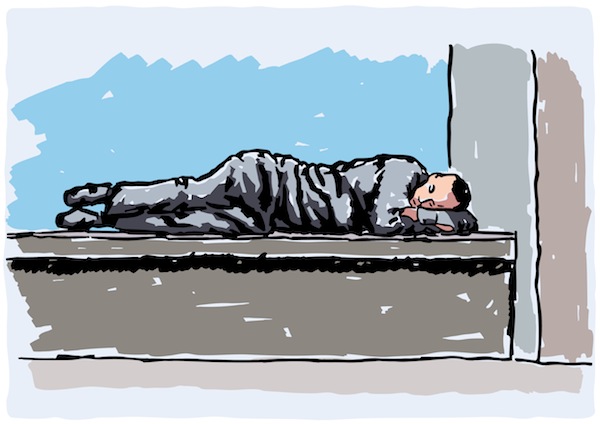[contextly_auto_sidebar]
 Hanging around ‘without apparent purpose’, carrying a golf bag, and covering of the face have all been banned under new style public spaces protection orders (PSPOs).
Hanging around ‘without apparent purpose’, carrying a golf bag, and covering of the face have all been banned under new style public spaces protection orders (PSPOs).
According to freedom of information requests made by the Manifesto Club, which campaigns for less regulation in every day life, in the 16 months since the introduction of PSPOs, 130 orders have been passed in 79 local authorities in England and Wales. You can read the report (PSPOs: A Busybodies’ Charter) here and more on the Justice Gap here.
‘Some of these PSPOs have been popular with certain sections of the public; one or two have been the result of local campaigns,’ says the group. ‘But many have passed silently without public notice, and several dozen have been staunchly opposed by local and national campaigns, sometimes passing anyway.’
‘These measures have been presented as a decentralisation of power to local communities, but in reality central government has given certain council officers the powers to create new criminal laws, with minimal checks and balances and a very low burden of proof.’
Manifesto Club
Before the introduction of PSPOs, the Manifesto Club warned that the powers would be used to target ‘groups who were seen as “messy” in public spaces, such as the homeless, young people or buskers’.
The group’s report by its director Josie Appleton reckons there are presently six councils restricting begging, three banning sleeping in public, and five restricting music or street art.
It cites the following ‘bizarre’ offences that have been drawn up: ‘the offence of carrying a golf bag in North East Derbyshire, of using noisy remote controlled vehicles in Hillingdon; the crimes of covering the face in Sefton, Halton and Birmingham, engaging in pavement art in Swindon, or being in a camping vehicle in areas of Luton or Wolverhampton’.
‘We did not expect that so many councils would criminalise shouting or swearing in a public place, or create new crimes of congregating in groups or loitering (defined by Blackpool Council as ‘standing or waiting around without apparent purpose’),’ the group added.
Whilst the Manifesto Club recognises cases the orders address ‘genuine problems’ of criminality or public order in certain areas, in others they have been introduced in ‘largely trouble-free areas’ where the new orders are ‘merely criminalising an anodyne, even positive, part of life in public spaces, such as a busker playing a tune or an elderly person feeding the pigeons’.
PSPOs, introduced under the 2014 Anti-Social Behaviour, Crime and Policing Act, can be used to ban any activity in public spaces which the local authority believes to have a ‘detrimental effect on the quality of life of those in the locality’. According to the human rights group Liberty, they contain ‘broad powers which allow councils to criminalise particular, non-criminal, activities taking place within a specified area. Unfortunately, we have frequently seen them used against the most vulnerable in our society, the homeless’.
Josie Appleton, the report’s author, said that last year had been ‘a very strange year in law-making’. ‘These new powers take the criminal law into unprecedented areas. The notion that something should be restricted because it has a ‘detrimental effect’ on the ‘quality of life’ is an extremely low bar, which means that things can be banned simply because they are disliked by certain individuals or a group of people,’ she said.
The study also looked at the lack of accountability in the passing of PSPOs. There is no requirement for public consultation, or for PSPOs to be passed through elected council representatives. ‘Out of the 56 councils who have passed a PSPO and provided the data, half (28 councils) have done so through a single council officer. 17 councils (30%) passed the order through a committee, but only nine councils (16%) passed the PSPO through full council. Five councils have enacted a PSPO without carrying out an open public consultation,’ the group said.
PSPOs: A Busybodies’ Charter
In total, there have been 130 PSPOs issued by 79 local authorities, out of the 346 authorities with the power to enact PSPOs:
- 12 bans on loitering or congregating in groups;
- 10 bans on shouting or making excessive noise; and
- 9 on swearing;
- 3 councils have banned rough sleeping;
- 3 have prohibited the covering of the face;
- 5 have banned music or street art; and
- 2 have banned assertive or aggressive charity collection.







